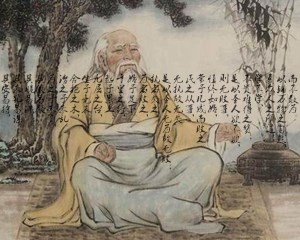(单词翻译:单击)
译文:局面安定时容易保持和维护,事变没有出现迹象时容易图谋;事物脆弱时容易消解;事物细微时容易散失;做事情要在它尚未发生以前就处理妥当;治理国政,要在祸乱没有产生以前就早做准备。合抱的大树,生长于细小的萌芽;九层的高台,筑起于每一堆泥土;千里的远行,是从脚下第一步开始走出来的。有所作为的将会招致失败,有所执着的将会遭受损害。因此圣人无所作为所以也不会招致失败,无所执着所以也不遭受损害。人们做事情,总是在快要成功时失败,所以当事情快要完成的时候,也要像开始时那样慎重,就没有办不成的事情。因此,有道的圣人追求人所不追求的,不稀罕难以得到的货物,学习别人所不学习的,补救众人所经常犯的过错。这样遵循万物的自然本性而不会妄加干预。

《道德经》(第六十四章)
其安易持,
其未兆易谋。
其脆易泮,
其微易散。
为之于未有,
治之于未乱。
合抱之木,
生于毫末;
九层之台,
起于累土;
千里之行,
始于足下。
为者败之,
执者失之。
是以圣人无为故无败;
无执故无失。
民之从事,
常于几成而败之。
慎终如始,
则无败事,
是以圣人欲不欲,
不贵难得之货;
学不学,
复众人之所过,
以辅万物之自然,
而不敢为。
Chapter 64
What is secure is easily grasped,
What has no omens is easily forestalled,
What is brittle is easily split,
What is minuscule is easily dispersed.
Act before there is a problem;
Bring order before there is disorder.
A tree that fills the arms' embrace is born from a downy shoot;
A terrace nine layers high starts from a basketful of earth;
An ascent of a hundred strides begins beneath one's foot.
Who acts fails;
Who grasps loses.
For this reason,
The sage does not act.
Therefore,
He does not fail.
He does not grasp.
Therefore,
He does not lose.
In pursuing their affairs, people often fail when they are close to success.
Therefore,
If one is as cautious at the end as at the beginning, there will be no failures.
For this reason,
The sage desires to be without desire and does not prize goods that are hard to obtain;
He learns not to learn and reverts to what the masses pass by.
Thus,
he can help the myriad creatures be natural, but dares not act.
更多精品翻译素材,敬请关注可可英语。


